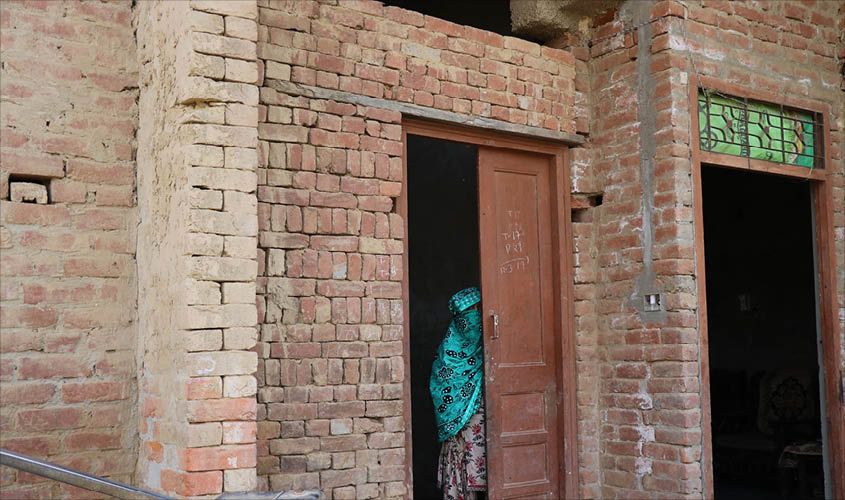Muzaffarnagar: Those affected in the aftermath of the Muzaffarnagar riots still have painful memories of the event. Thousands of families—mostly of landless Muslim agricultural workers—fled from their homes, leaving behind their cattle and the little property they owned, to settle in rehabilitation camps like the one located in Jaula village of Muzaffarnagar. The Sunday Guardian visited the camp to take stock of the experiences of those who have painful memories of the riots in 2013.
“The election season brings fear for us. It haunts when we recall how a devastating riot that erupted in the backdrop of the 2014 Lok Sabha polls in Muzaffarnagar forced us to live like refugees in our own village,” Khursheed, a riot victim and resident of a rehabilitation camp in Jaula village, far from the main Muzaffarnagar city.
The Jaula village camp has nearly 400-500 families of those who had fled from their villages like Lisad, Hasanpur, Bawdi, Fugana, lakh, Kharad, Kheramastan, Mohammadpur and Gaddana and took shelter to save their lives during the 2013 riots.
However, most of them have built a “permanent house in the camp and now they don’t want to return to their homes. For the residents of Jaula camp, the last five years have been a daily struggle to earn a livelihood and yet they feel much safer here than in their homes in their respective villages.
Ikramuddin, one of the riot victims, told The Sunday Guardian: “Ever since the 2013 riots erupted in the backdrop of the last Lok Sabha polls, we have developed a fear for elections and try to remain silent during the voting season. We don’t want even to recall the situation that we had witnessed. We were forced to leave our houses and belongings and live in rehabilitation camps like refugees in our own village.”
“After the riots, Akhilesh Yadav had given Rs 5 lakh to the each of the victims’ families for rehabilitation. Out of this money, most of the victims have built a small house and have started living life here. Now we don’t want to return to our villages,” Ikramuddin said.
Haseena, who once used to go to a school, recalls: “I was in class six and used to go to school every day, but one day suddenly our family fled from Lisad, our ancestral village and my school became a distant memory. Here, I and most of the girls of my age don’t go to schools.”
Khursheed said: “We want to remain at a distance from parties and politics. We are farm labourers and are managing our lives despite poverty. Political leaders don’t think anything better for residents of this camp. The camp here has not seen any kind development. Our children are forced to live uneducated, deprived of all rights.”
Asked to name one development in their camp that has happened in five years, Khurshed said: “A few families had got gas cylinders and two toilets in the area under Prime Minister Modiji’s scheme. Unfortunately, the families living here can’t get their cylinders refilled and the toilets are not even operational.”
Rohan, an octogenarian resident of the camp, said: “Leave aside development, we have not even been given ration cards which allow people to avail foodgrains. Now, I am not even hopeful to see any change in our lives. My son has migrated to Delhi and this is mostly the case with every family.”

